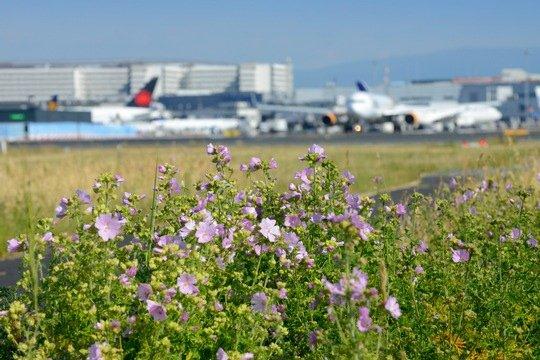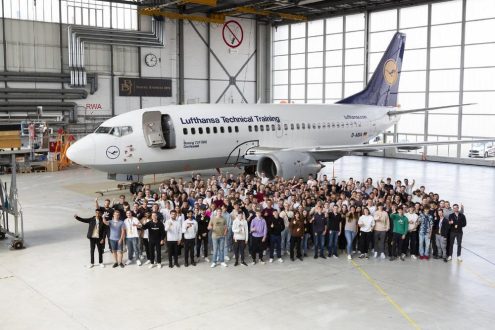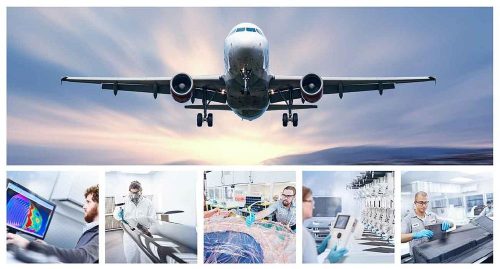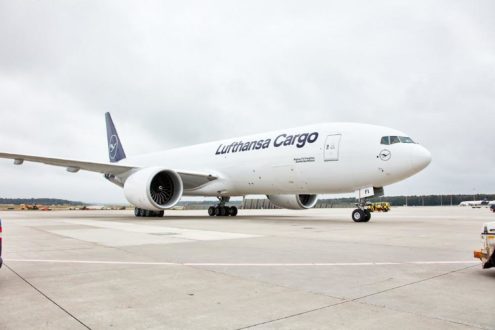
Accelerating Climate Action: Fraport Tightens 2030 Carbon Target
Fraport’s CEO, Dr. Stefan Schulte, said: “Aviation needs to make a significant contribution towards protecting our planet’s climate. And we need to act faster than in years gone by. That’s our responsibility. For this reason, we’ve once again revised our masterplan for climate action, intensifying our measures wherever possible.”
Green electricity the most important lever for cutting CO2
The centerpiece of the decarbonization efforts will be the future electricity mix used at Frankfurt Airport, which will largely consist of renewable sources from 2026. By that year, a Power Purchase Agreement (PPA) with German energy company EnBW will see around 85 per cent of electricity needs being met by wind energy from the North Sea. Moreover, large photovoltaic systems (PV) at the airport will provide another significant proportion of required energy needs. “In every sector, green electricity is the key to a sustainable, climate-friendly approach. We’ve set the pace in Frankfurt by opting for a high-quality PPA and modern photovoltaic systems at an early stage and by consistently pursuing these two approaches”, explained CEO Schulte. Along with changes to the electricity mix and the expansion of alternative propulsion methods, Fraport is also pursuing numerous measures to make Frankfurt Airport’s infrastructure more climate-friendly. These include the installation of smart, needs-driven building technology for air conditioning and lighting, in addition to continuing the switchover to LEDs.
Climate protection will only be successful with a global approach
By 2045, Fraport will be CO2-free not just at its FRA home-base, but at all fully-consolidated Group airports around the world. Dr. Stefan Schulte is clear: “Zero carbon means we will achieve this target without offsetting our emissions. We’re not going to rely on compensatory measures and their impact in the distant future. We’re taking the direct route.”
Along with the Group’s home-base Frankfurt Airport, Fraport’s climate protection target for 2045 will also apply to its companies and subsidiaries in Lima (Peru), Burgas and Varna (Bulgaria), Ljubljana (Slovenia), Fortaleza and Porto Alegre (Brazil), as well as to the Group’s 14 airports in Greece. By 2030, Fraport will cut CO2 emissions at its global subsidiaries to 95,000 tonnes. Dr. Stefan Schulte explained: “We see climate change as a central challenge for our international business. We need ideas and approaches that are tailored to each location, while taking their natural environment into account.” For example, Fraport’s South American airports are already well positioned in terms of their electricity mix, with much of their energy coming from renewables – especially hydroelectric generation.
In Greece, Fraport’s initial priority when taking over the management of the 14 regional airports was largely to secure their operational capabilities. CEO Schulte: “We’ve only just started rolling out our climate protection measures in Greece, but we’re going to be taking an even more focused approach in the years to come.”
Commenting on Fraport’s climate achievements so far, Dr. Schulte said: “The pandemic took a considerable economic toll on Fraport and presented us with substantial new challenges that continue even today. The fact that we’ve still been able to maintain our climate commitment almost without modification and have continued to take steps in a timely manner is thanks to the solid preliminary work that our specialist units undertook over the preceding years. We’ve been able to build on these strong foundations. With numerous projects focused on lowering our carbon footprint, we’ve managed to lower our CO2 emissions at Frankfurt Airport by 50 per cent since 1990, the base year under international climate agreements.”
Sector-wide efforts to protect the planet’s climate
Fraport has direct responsibility for around ten per cent of CO2 emissions that are made at its home-base airport in Frankfurt. The current decarbonization masterplan is focused on emissions that fall under Fraport’s immediate control, i.e. emissions from Scope 1 and 2. Above and beyond this, Fraport is working within the aviation industry and the airlines, as well as the Deutsche Bahn railroad company, and other industry partners and local companies to implement joint climate measures under Scope 3.
In this vein, Dr. Stefan Schulte has a plea for policymakers: “As a general rule, we welcome any political initiative to protect the planet’s climate. However, we cannot allow unfair competition to be the end result, which will ultimately cause climate protection measures to miss their mark. That’s because if flying becomes more expensive only within Europe, passengers will simply switch to other routings. A safe journey – our promise to our passengers at all our airports – should also involve a sustainable future. We want to make sure this happens with our versatile climate protection strategy. And we will continue to seek an integral approach to greener aviation across our industry.”
A glossary of climate terms used in Fraport’s masterplan can be found in the Climate press kit.
FraSec Fraport Security Services GmbH
Hugo-Eckener-Ring
60549 Frankfurt am Main
Telefon: +49 (69) 690-25311
http://www.frasec.de
![]()




